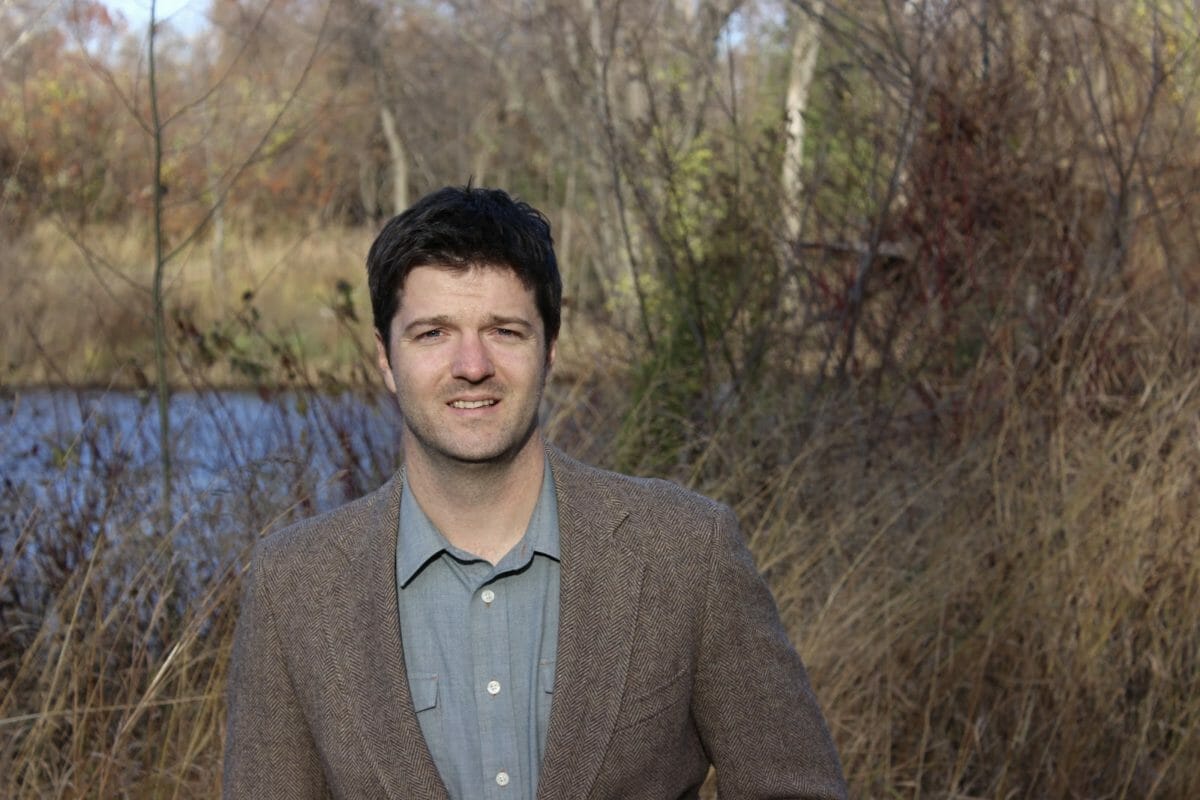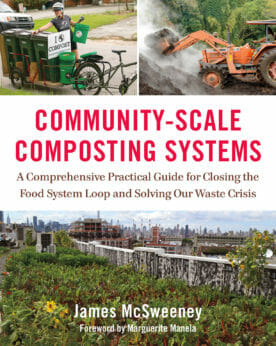A compost consultant taps the other black gold

For James McSweeney, compost is the new black — black gold, that is. McSweeney, a composting consultant, shares his passion and expertise for this soil-building, job-creating, local-food-growing and planet-saving material in his new book, Community-Scale Composting Systems: A Comprehensive Practical Guide for Closing the Food System Loop and Solving Our Waste Crisis. Modern Farmer talked with McSweeney about his book, the current state of compost and its future.
Modern Farmer: In your book, you describe 10 models of community composting programs. Why so many?
James McSweeney: A food-scrap recycling infrastructure is a new thing, and people are just going for it. This means that community composting programs form organically and under different circumstances. They adopt on-farm manure and municipal waste-management principles and customize tested methodologies to meet food-scrap handling requirements at different scales and costs. Many start small and learn as they go, hacking and innovating. Every system has the same components – generators, collectors, processors and end users – but each is unique.
MF: Can cities implement them, or is a more decentralized approach better?
J.M.: I think a public-private partnership is ideal, but right now, we’re seeing some decentralized systems, and that’s good. Small-scale processors keep organic matter in the community. They make a clean, high-quality product and ensure that it gets back to local soil.
MF: How does community composting have an impact on urban farms and local food initiatives?
J.M.: In urban areas and on vegetable farms that don’t have animals to generate manure, there is a demand for fertile soil, and compost meets that need. The animal composting side — feeding food scraps to animals — is also a fast way to convert waste to food.
MF: Are there other economic impacts?
J.M.: Community composters are, at the very least, breaking even, able to pay salaries and growing. It’s a hard business because we undervalue soil, and compost is an amazing tool for creating healthy soil and plants. The nutrient-rich food scraps that come in daily by the ton have value. The resulting compost captures water and puts carbon back into the soil. Photosynthesis converts it into food and creates jobs in landscaping and agriculture.
MF: What about the community side of community composting?
J.M.: Community composters create local partnerships and connect resource streams. They foster a sense of pride around composting, especially in schools, where the most important work happens. Composting becomes second nature for those kids: They grow up doing something for the planet every day and, over time, it becomes second nature, which can lead to a sustainable paradigm shift.
MF: What excites you about the current state of community composting?
J.M.: It’s growing. I get calls nearly every day from folks who want to start. What is exciting is that progress is being built right now. The framework, design and engagement around composting are all happening now. Most community composters are under 40, so it’s a young movement in every sense of the word. Some will come and go, but many will survive and grow.

I know someone who gardens and he buries vegetable scraps in a section of his garden to decompose. The decomposition process can be smelly so, it, seems to me that having the process go on underground more or less helps keep the smell down and allows soil organisms access to their food source!
Many, many years ago farmers who kept pigs would collect the food scraps from school cafeterias for their pigs. The practice was stopped due to health concerns. Sounds like it may come back again.